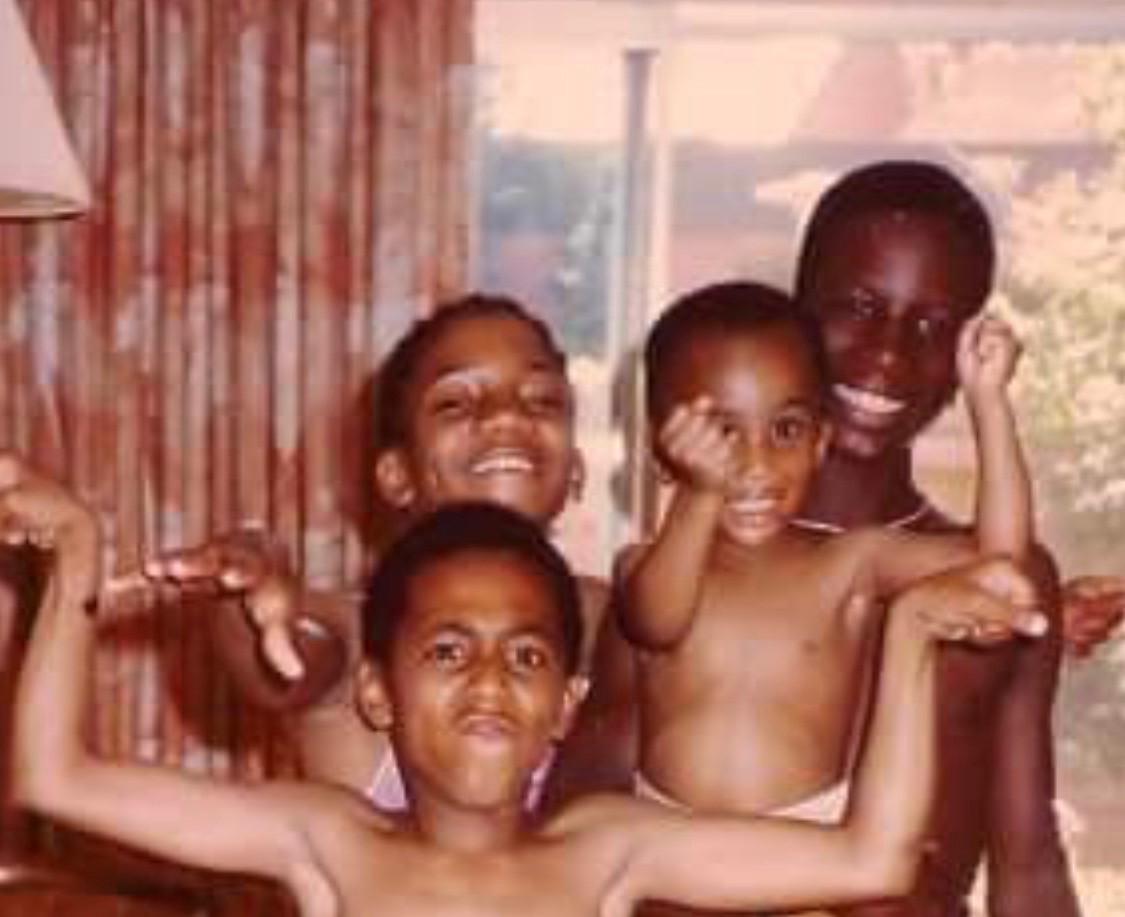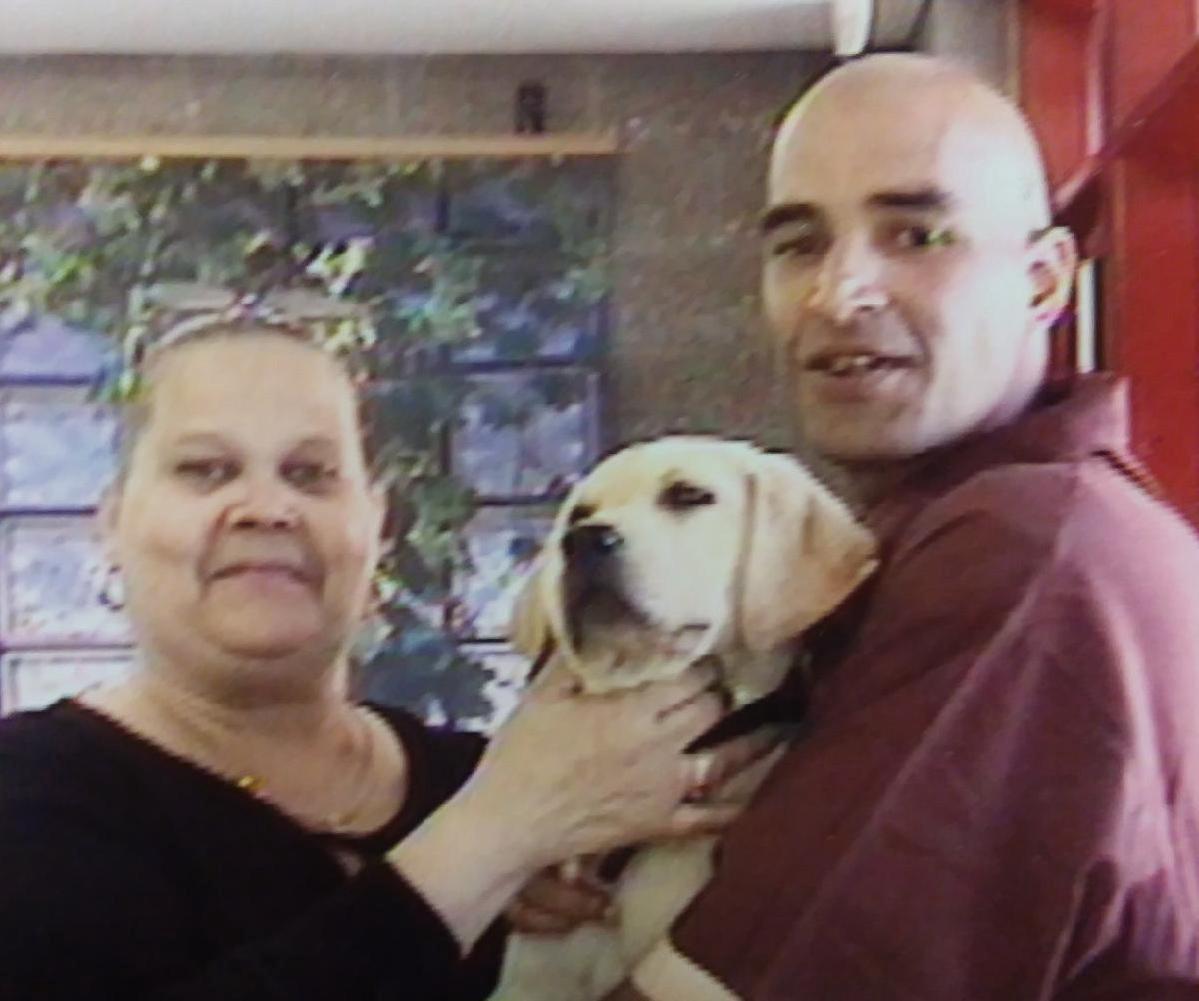Crime Victims Backing Philly DA Larry Krasner Don’t Want Tougher Sentences — They Want Fair Ones
A widely shared, recent piece in the Philadelphia Inquirer tells the story of a woman’s grief six months after her husband was murdered. Gerry Grandzol was shot at close range by two young Black men while he was unpacking groceries from his SUV with his two young daughters. The family, which is white, lived in a typically […]

A widely shared, recent piece in the Philadelphia Inquirer tells the story of a woman’s grief six months after her husband was murdered. Gerry Grandzol was shot at close range by two young Black men while he was unpacking groceries from his SUV with his two young daughters. The family, which is white, lived in a typically sleepy neighborhood where shootings are rare. After losing her husband, Kristin Grandzol said she was moving her family to the suburbs. “Slain Spring Garden activist Gerard Grandzol’s widow: City not safe, we’re leaving,” the headline proclaimed.
In part, the Inquirer implied, that’s because she wasn’t sure Philadelphia’s new, reform-minded district attorney, Larry Krasner, could be trusted to hold her husband’s killers responsible. One of them was under 18 and she worried that given Krasner’s push for more “lenient sentences,” as the story put it, he would be tried as a juvenile. “I know I wouldn’t want to still be on the streets of Philadelphia with them free,” she said. But Krasner’s office had not said it would charge the perpetrator as a juvenile — a point buried in the piece — and later wrote a strongly worded opposition to the defense’s motion to do so. A hearing to decide if he should be tried as a juvenile is scheduled for next month.
Articles like this and others, featuring the stories of victims who are unhappy with Krasner’s office, make it seem as if crime victims on the whole oppose him, that they want a DA who throws the book at criminals in order to keep them safe. But advocates of fair sentencing say that narrative ignores another set of crime survivors: those who have suffered but who still support a more nuanced approach to punishment and rehabilitation. Many of those people not only support Krasner — they campaigned for him.
“People who are most affected by crime most often have an understanding that people who are committing crime and ending up in prison for it are the same people that have been harmed,” said Yale Law School professor Miriam Gohara.
Take Kim King, age 46, who volunteered for Krasner’s campaign. Twenty years ago, her younger brother Damani was murdered. She said Damani was sitting in a car late at night in North Philadelphia when another young man opened fire. Damani was just 23 years old. It was a “devastating” blow, King said. She comes from a tight-knit family, with a father who was a high school teacher and tried to instill in them the importance of education and good morals. This wasn’t supposed to happen to her family, she thought. Her early days of grief were defined by both sadness and a burning desire for retribution. The night Damani died, her family gathered at the hospital. “There were some males in the family who were talking about going to the area and seeking revenge. I remember wanting that; I wanted him to hurt,” she said of the perpetrator. “I wanted him to be punished.” Luckily, her father talked the younger men down. Otherwise, one tragedy would likely have led to others.
The case was never solved. King said that the police investigator was sure he knew who did it, but could not find witnesses to ID the gunman. About a year after Damani was killed, she heard that the suspect was convicted for an unrelated murder and sent away for life. And in Pennsylvania, life means life. She thought this would help ease her sorrow, knowing that her brother’s killer was behind bars for his remaining days — but found that her grief stung just as sharply. “So what that he got a life sentence? That didn’t give me any resolve for Damani,” she said. “I realized it just didn’t relieve me from the pain.”
She came to believe that in order to move on, she needed to forgive her brother’s killer. This revelation came at a time when she was looking for people to find the same mercy for another of her brothers, Terrell, who had been given a life sentence for his participation in a murder. “I couldn’t ask for forgiveness for one when I wasn’t willing to give it to the other,” she told The Appeal. She describes Terrell as a young man who sought acceptance in the wrong places. He did something immoral, and needed to be punished, she said. But in the years since, he’s grown into a calm, insightful adult, she said, a wholly different person than the young man who got into trouble. She wants him home.
King mourns the loss of both her brothers: one to gun violence and the other to prison. This viewpoint has shaped her views on criminal justice. “If you did something wrong, you deserve to be punished, but don’t take away an entire life,” she said. “We need to deal with each [person] as an individual instead of a one-size-fits-all with these ridiculous sentences.” When she heard about Larry Krasner, a DA candidate who had a “similar mindset” to her when it came to punishment and sentencing, she volunteered for his campaign.
King’s position as a crime victim who supports a less punitive criminal justice system is not uncommon. A 2016 poll of over 800 crime victims by the Alliance for Safety and Justice found respondents overwhelmingly favored rehabilitation over harsh punishment: Seven out of 10 preferred prosecutors who focused on neighborhood-based rehabilitation services over long prison sentences — victims of serious violent crimes, including rape, assault, sexual assault, or murder of a family member, leaned towards rehabilitation at an even slightly higher rate. Fifty-two percent of all respondents believed that prison makes a person more likely to commit another crime.
That’s partly because of where crime happens. It tends to be concentrated in neighborhoods that are less economically stable. The reality is that most people who are perpetrators of violence have also been victims. Studiesshow that incarcerated men have experienced trauma at a rate double that of other men in the community. One study showed that up to 60 percent of male inmates showed signs of PTSD — not from war abroad, but from getting beaten up, and threatened with guns or knives.
Nationally, 95 percent of incarcerated people eventually return home, so high-crime communities have a vested interest in perpetrators’ rehabilitation. “It makes sense that communities would rather have people come back who have received mental health treatment for their trauma or other conditions, for their addictions, rather than having people come out who were more traumatized than when they went in,” Gohara said.

In Philadelphia, King was far from the only crime victim who campaigned for Krasner. At least a dozen others were actively involved, according to Sean Damon, an organizer at the West Philadelphia Amistad Law Project. One of those volunteers was Lorraine Haw, 61, who is fighting for her son to be released from a life sentence, and also for the man who killed her brother to be taken off death row. Like King, Haw understands that when a loved one is hurt or killed, the natural initial reaction is a desire for retribution. “But once your sense comes back, you realize that there is no closure,” she said. “You know how I live better? I’ve forgiven that man that took my brother’s life. Everybody deserves a second chance.”
Krasner hasn’t always won praise from crime victims. During his first few months in office, his lawyers dropped the ball on keeping victims up to date on changes in individual cases. This lapse drew pushback, which was fair, says Victoria Greene, co-founder of EMIR Healing Center, a nonprofit that supports family and friends of murder victims in a relatively high-crime neighborhood. She herself lost a son to gun violence. But in the wake of that criticism, Krasner announced a committee of crime victims to act as policy advisers, something he’d planned since his election. “He definitely is considering victims, talking about them, that’s an issue that he’s strong on,” she said.
To Greene, what’s most important is that victims are given a seat at the table, both at trial and in policy discussions — something she has not seen past DAs prioritize. Many people she works with report feeling like “pawns” at the trial, she said, and then having their cases “swept under the rug.”
The families Greene helps, who are mostly Black or Latinx, “they’re not heard,” she said, unlike white families like the Grandzols, whose cases more often make the headlines. “When someone white is murdered it’s, ‘Oh they could have been successful. Oh, they could have been this or that.’ That’s not what you hear when a Black man is murdered,” she said. She is hopeful that Krasner “will help change the culture and give a semblance of equality,” she added. “Victims need a platform. That’s the problem; we don’t have a platform.”
